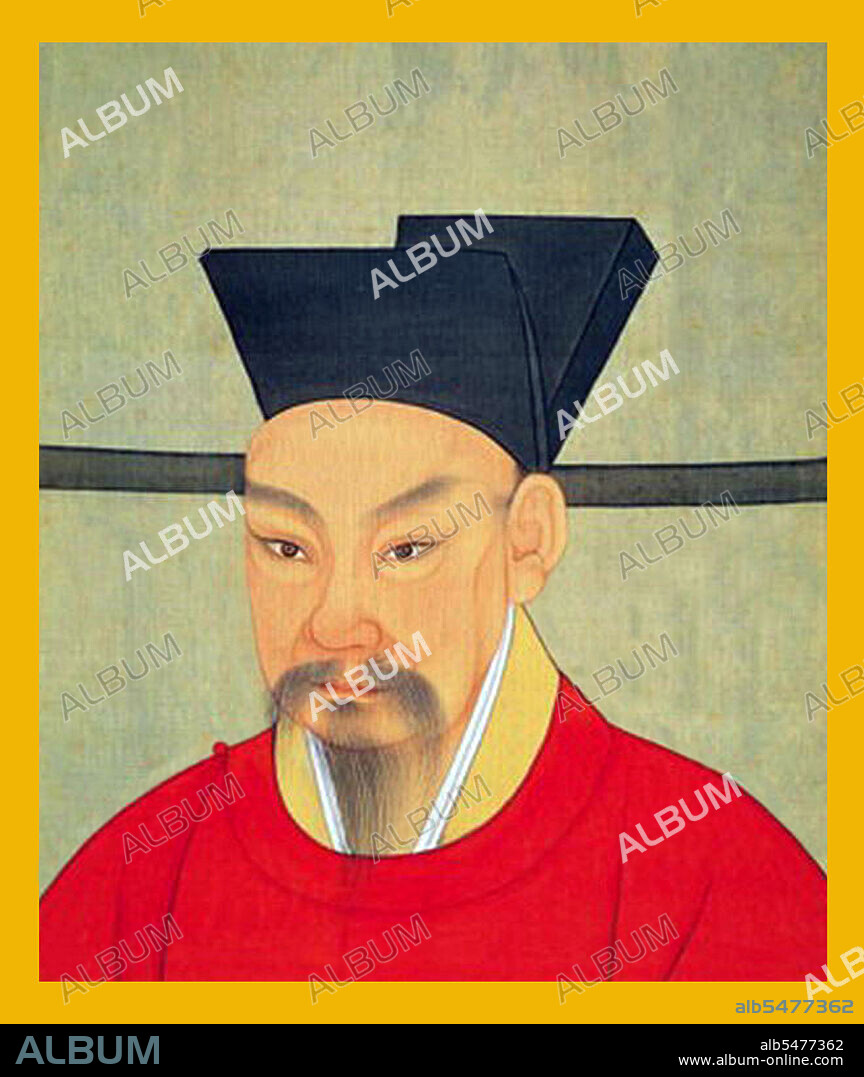alb5477362
China: Emperor Lizong (Zhao Yun),14th ruler of the Song Dynasty and 5th ruler of the Southern Song (r. 1224-1264).

|
Add to another lightbox |
|
Add to another lightbox |



Title:
China: Emperor Lizong (Zhao Yun),14th ruler of the Song Dynasty and 5th ruler of the Southern Song (r. 1224-1264).
Caption:
Emperor Lizong (1205–1264) was the 14th emperor of the Song Dynasty of China, and the fifth emperor of the Southern Song. His personal name was Zhao Yun. He reigned from 1224 to 1264. Lizong's long reign of forty years did little to improve the predicament Song China was in at the time. Lizong was uninterested in governmental affairs and for the first decade of his rule he delegated matters into the hands of his ministers notably Shi Miyuan who acted as a de facto ruler in the absence of the Lizong Emperor. After Shi's death in 1233, Lizong assumed full authority briefly but again quickly abandoned the responsibility of ruling and delegated matters to his prime minister Ding Da Quan in order to pursue personal enjoyment. It was said that Lizong frequented brothels as well as invited prostitutes into the palace which was vehemently opposed by his loyal ministers. Notable events during Lizong's reign included the demise of the Jin dynasty in 1234 that was obliterated by the joint forces of the Mongols and the South Song Dynasty. However in 1259, the Mongols turned against the Southern Song. The Song was forced to capitulate and ceded all the territories north of the Yangtze River to the Mongols. In 1279, the Mongols would eventually conquer all of China.
The Song Dynasty (960–1279) was an imperial dynasty of China that succeeded the Five Dynasties and Ten Kingdoms Period (907–960) and preceded the Yuan Dynasty (1271–1368), which conquered the Song in 1279. Its conventional division into the Northern Song (960–1127) and Southern Song (1127–1279) periods marks the conquest of northern China by the Jin Dynasty (1115–1234) in 1127. It also distinguishes the subsequent shift of the Song's capital city from Bianjing (modern Kaifeng) in the north to Lin'an (modern Hangzhou) in the south.
The Song Dynasty (960–1279) was an imperial dynasty of China that succeeded the Five Dynasties and Ten Kingdoms Period (907–960) and preceded the Yuan Dynasty (1271–1368), which conquered the Song in 1279. Its conventional division into the Northern Song (960–1127) and Southern Song (1127–1279) periods marks the conquest of northern China by the Jin Dynasty (1115–1234) in 1127. It also distinguishes the subsequent shift of the Song's capital city from Bianjing (modern Kaifeng) in the north to Lin'an (modern Hangzhou) in the south.
Credit:
Album / Pictures From History/Universal Images Group
Releases:
Model: No - Property: No
Rights questions?
Rights questions?
Image size:
3900 x 4621 px | 51.6 MB
Print size:
33.0 x 39.1 cm | 13.0 x 15.4 in (300 dpi)
Keywords:
ASIA PICTURES • ASIA • ASIAN IMAGE • ASIAN IMAGES • ASIAN PICTURES • ASIAN • CHINA • CHINE • CHINESE • DYNASTY • EMPEROR • HISTORIA UNIVERSAL • HISTORICAL IMAGES • HISTORICAL PICTURES • HISTORY IMAGES • HISTORY PICTURES • HISTORY • IMPERIAL CHINA • KAISER • KING • LIZONG • MANDATE OF HEAVEN • MONARCH • MONARCHY • PORCELAIN • ROYALTY • RULER (POLITICAL) • RULER • RULERS • SONG DYNASTY • SOUTHERN SONG • SOVEREIGN (RULER) • SOVEREIGN
 Pinterest
Pinterest Twitter
Twitter Facebook
Facebook Copy link
Copy link Email
Email

